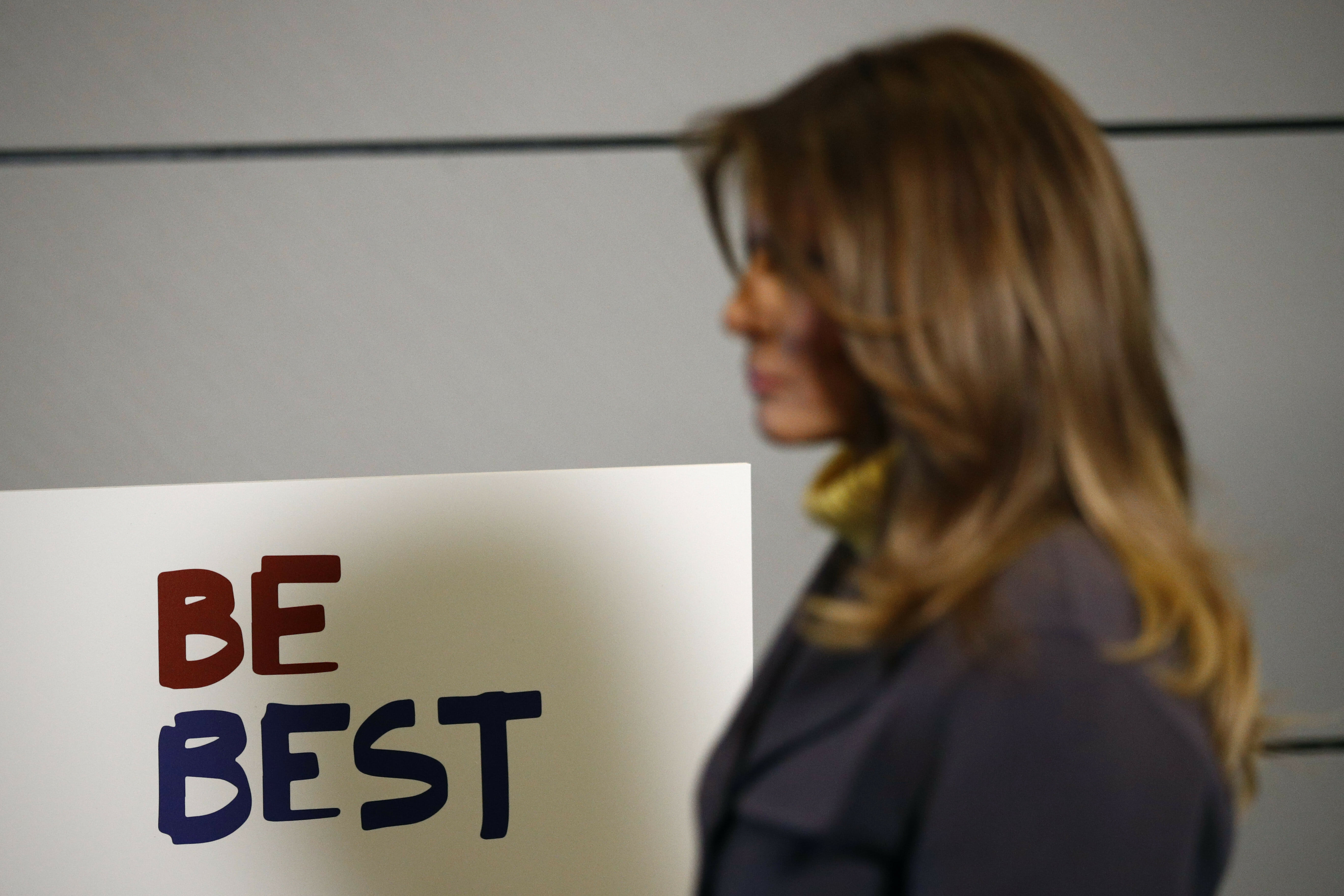
First lady asks public to see opioid crisis as 'human story'
LAS VEGAS (AP) — First lady Melania Trump prodded the news media on Tuesday to spend as much time highlighting the opioid epidemic at it devotes to “idle gossip or trivial stories.”
Mrs. Trump said she wished the media would talk about the epidemic more “and educate more children, also adults, parents, about the opioid crisis that we have in United States.” She spoke during a town hall-style discussion in Las Vegas about the epidemic that claimed nearly 48,000 American lives in 2017. “They do it already, but I think not enough.”
The first lady suggested the epidemic should be leading the news when host Eric Bolling — who addressed her as “Lady M” — asked what else the media could do.
“I think it should be on every media and the front pages of the newspaper, and I’m sure a lot of people would follow and go home and talk with the children and educate them, so they are responsible adults and they show them how drugs can be dangerous,” she said. Her audience of several hundred people, including entertainer Wayne Newton, was seated in a theater where Elvis Presley once performed at the Westgate hotel and casino.
Mrs. Trump used the event to close a two-day, three-state promotional tour for her “Be Best” initiative, which includes a focus on babies born dependent on opioids. Bolling, a former Fox News host, lost his only child, 19-year-old son Eric Chase, to an accidental drug overdose in September 2017.
During remarks before she answered questions from Bolling, the first lady encouraged the public to look beyond the raw numbers and see the opioid crisis as a “human story.”
She also challenged the news media during those remarks “to devote as much time to the lives lost, and the potential lives that could be saved, by dedicating the same amount of coverage that you do to idle gossip or trivial stories.”
“When we see breaking news on TV, or the front pages of newspapers — it is my hope that it can be about how many lives we were able to save through education and honest dialogue,” Mrs. Trump said.
She said she teaches her own 12-year-old son, Barron, “how drugs are dangerous. It will mess up your head. It will mess up your body and nothing comes positive out of it.”
The discussion included lighter topics as well. Asked what her family’s choice for a group meal might be, she said “spaghetti.”
As for how much cooking she does, the first lady said she leaves that to the “professionals” at the White House, adding that there’s “really no time” for her to cook.
The first lady participated in a similar conversation led by Bolling last November at Liberty University in Virginia.
President Donald Trump has declared the opioid crisis a public health emergency and his administration is spending billions of dollars to fight it.
___
Follow Darlene Superville on Twitter: http:://www.twitter.com/dsupervilleap
The Western Journal has not reviewed this Associated Press story prior to publication. Therefore, it may contain editorial bias or may in some other way not meet our normal editorial standards. It is provided to our readers as a service from The Western Journal.
Truth and Accuracy
We are committed to truth and accuracy in all of our journalism. Read our editorial standards.
Advertise with The Western Journal and reach millions of highly engaged readers, while supporting our work. Advertise Today.












